Eye Infections in Horses
Updated on 04/26/24
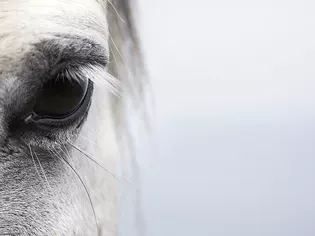
Eye Infections in Horses: A Comprehensive Guide to Diagnosis, Treatment, and Prevention
Introduction
The eyes of a horse are incredibly sensitive and complex, and they are vulnerable to a wide range of infections that can cause discomfort, vision problems, and even blindness. Early detection and treatment of eye infections are crucial to ensure the best possible outcome for your horse. This comprehensive guide will provide you with everything you need to know about eye infections in horses, including symptoms, causes, diagnosis, treatment, and prevention.
Symptoms of Eye Infections in Horses
The symptoms of eye infections in horses can vary depending on the type of infection, but some common signs include:
* Redness and swelling of the eyelid or conjunctiva
* Tearing or discharge from the eye
* Squinting or holding the eye closed
* Cloudiness or opacity of the cornea
* Ulcers on the cornea
* Pain or discomfort
Causes of Eye Infections in Horses
Eye infections in horses can be caused by a variety of factors, including:
* Bacteria, such as Streptococcus equi, Staphylococcus aureus, and Pseudomonas aeruginosa
* Viruses, such as equine influenza virus and equine herpesvirus
* Fungi, such as Aspergillus and Candida
* Parasites, such as Thelazia callipaeda
* Trauma, such as scratches or lacerations
* Foreign bodies, such as dust or sand
* Allergies
Diagnosis of Eye Infections in Horses
If you suspect that your horse may have an eye infection, it is important to seek veterinary attention as soon as possible. Your veterinarian will perform a thorough examination of your horse's eyes, including:
* Ophthalmoscopic examination to visualize the internal structures of the eye
* Slit-lamp examination to magnify the eye and examine its surface
* Fluorescein staining to identify corneal ulcers
* Culture and sensitivity testing to determine the specific cause of the infection
Treatment of Eye Infections in Horses
The treatment of eye infections in horses will depend on the type of infection and its severity. Some common treatments include:
* Antibiotics to treat bacterial infections
* Antivirals to treat viral infections
* Antifungals to treat fungal infections
* Antiparasitics to treat parasitic infections
* Topical ointments or eye drops to apply directly to the eye
* Oral medications to treat systemic infections
* Surgery to remove foreign bodies or treat corneal ulcers
Prevention of Eye Infections in Horses
There are a number of things you can do to help prevent eye infections in your horse, including:
* Practice good hygiene. Keep your horse's stall and surroundings clean and free of debris.
* Protect your horse's eyes from trauma. Use fly masks and UV-protective sunglasses to protect your horse's eyes from the sun and other irritants.
* Regularly check your horse's eyes. Look for any signs of redness, swelling, or discharge.
* Vaccinate your horse. Vaccinations can help protect your horse from viruses and bacteria that can cause eye infections.
* Isol
Explore More Pets

Pony Breeds
The Difference Between Horses and Ponies

Horse Diseases & Conditions
What Do I Do If My Horse Colics?
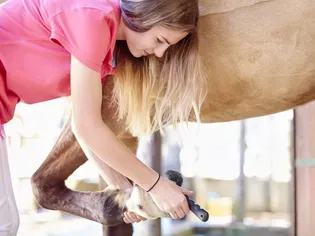
Pony Breeds
Horse and Pony Care by the Day, Week, Month and Year
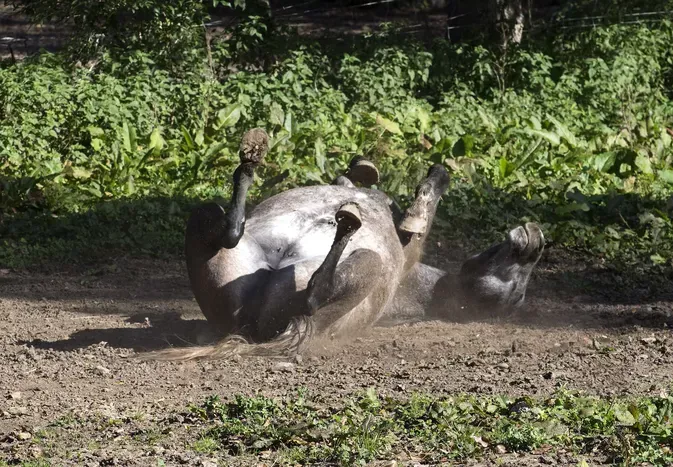
Horse Grooming
Mange in Horses
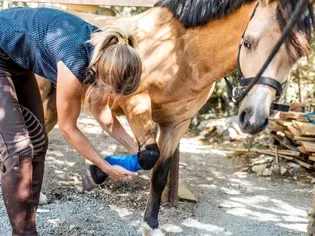
Horse Diseases & Conditions
Grease Heel in Horses

Light Horse Breeds
Gypsy Vanner Horse Breed Profile

Horse Diseases & Conditions
Girth Galls and Saddle Sores
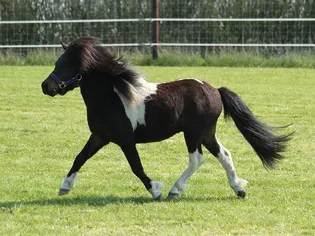
Pony Breeds
Shetland Pony Breed Profile